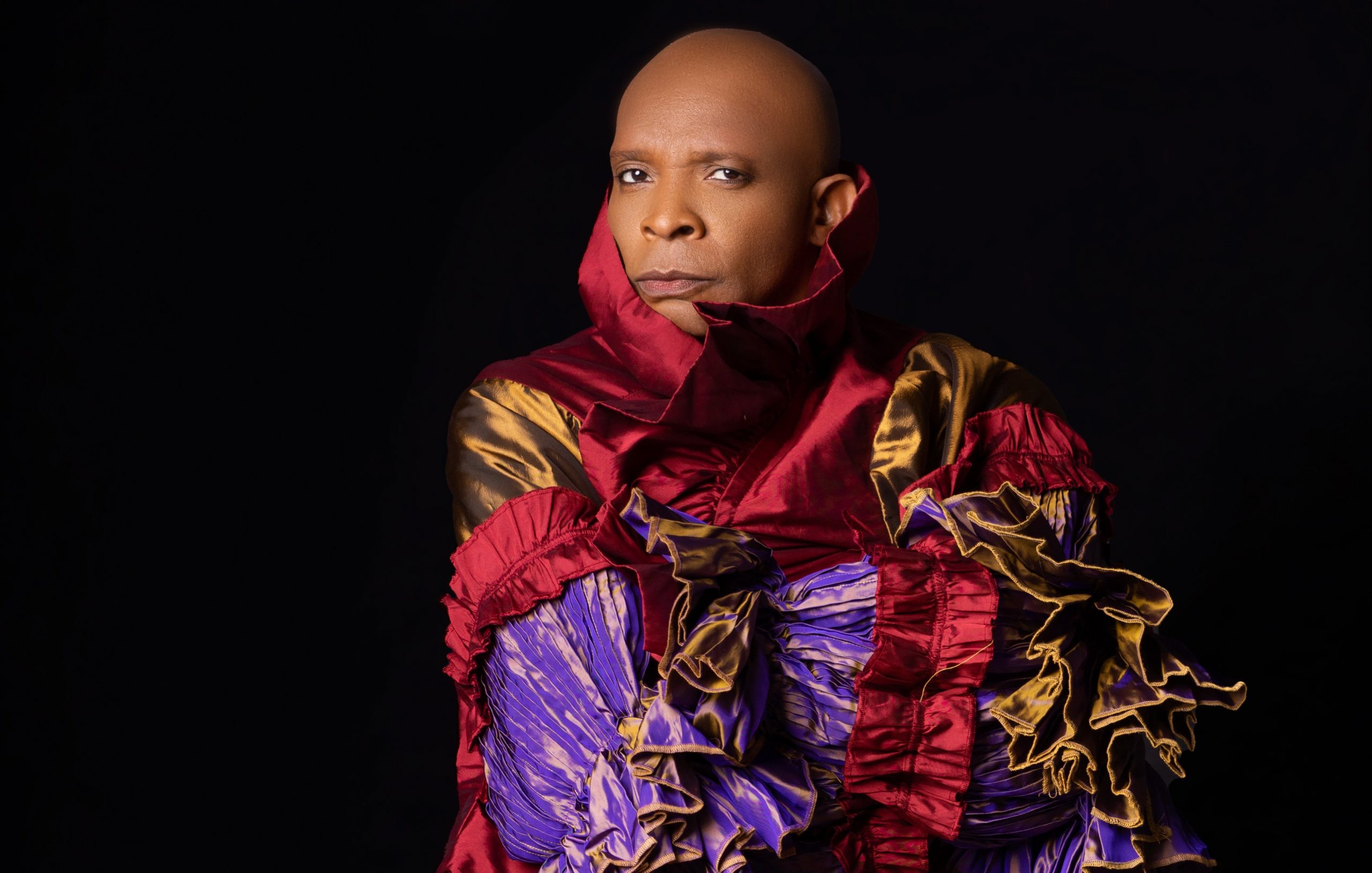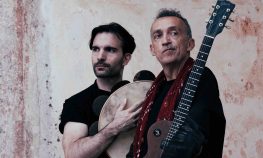Erol Josue

- YouTube
- Contact: info@riotsquadpublicity.com
Album Title ‘Pelerinaj’
Release Date 21 July 2023
“Utterly modern, entirely of-the-place, proud and endlessly inventive, a major musical revelation.” Morning Star *****
THE VOODOO PILGRIMAGE OF ÉROL JOSUÉ
“If humankind could live by the principles of voodoo, of community and tolerance and sharing, we could go so far” says Érol Josué, singer, dancer, voodoo priest and one of Haiti’s most vital and beloved artists.
Josué opens his long-awaited sophomore album, Pèlerinaj (‘Pilgrimage’ in Haitian Creole) by invoking voudou goddesses and saints and closes it with a live recording of a voodoo ceremony and the festivities that follow. He invokes the spirits (known as Iwa) to invite healing and tolerance as he explores his country’s uneasy journey – and his own. Pèrelinaj will have a UK release on 21 July.
Pèlerinaj is an 18-track foray into voodoo and the magnum opus of an artist whose signature sound and dazzling tenor voice blends sacred chants and traditional rhythms – dogo, noki, fla voudoun – with elements of funk, jazz, rock and club-friendly electronic music. It tells the story of Érol Josué’s own pilgrimage. Ordained at 17 as a priest of voodoo, the centuries-old African diasporic religion, Josué soon became part of Haitian diaspora. Two decades living in Paris, New York and Miami saw him becoming integral to a dazzling array of music projects and dance ensembles. The ‘electro-voudou’ sound he developed in the mid-noughties New York club scene with DJ Val Jeanty led to his first album, Régléman, in 2007. A 2009 voodoo documentary, followed by the cataclysmic 2010 earthquake, brought Josué back to his native country, his pilgrimage now complete.
As Director of Haiti’s National Bureau of Ethnology, a position he has held since 2012, Josué continues to introduce Haitian voodoo culture to universities and institutions across the United States. On ‘Pèlerinaj’ he sings – in French and Creole – not only of his own spiritual and political journey, but also of Haiti’s.
>From secret meetings of African slaves and Haiti’s Indigenous Arawak people (‘Badji’) to a paean to the resilience of a people who successfully revolted against slavery and colonialism (‘Je suis grand nèg’) only to face poverty, human rights violations and natural disasters, ‘Pèlerinaj’ takes us to the aftermath of the 2010 earthquake. ‘Avelekete’ is Josué’s tribute to the earthquake’s victims, calling on those yet to grieve to allow their tears to fall. ‘Kwi a’ reminds Haitians that they are descendants of freedom fighters who should never use their hollow kwi calabashes to beg; ‘Pèlerinaj fla vodou’ honors the country’s refusal to continue seeking international aid.
Through the country’s travails wind the forces and fates of voudou. “’Fla’ [‘Pèlerinaj fla vodou’] is the moment when everything is flowing in the ceremony,” says Josué. “Pilgrims sing this song as they climb to reach the feet of their patron saint.”
On ‘Kafou’, Joshué sings of his own pilgrimage – his journey and return. “The crossroads is an important symbol in voodoo. Which path to take – north or south, Paris or New York – is a decision called ‘kafou’. You put candles, alcohol and food on the crossroads. Then you say thank you, and you go.”
A roster of global musicians helps Josué and New York producer Czarnacki link together the singular journey of ‘Pèlerinaj’. French/Guadeloupean jazzman Jacques Schwarz-Bart plays saxophone and co-arranges three songs. Master percussionist Bauvois Anilus and guitarist Mark Mulholland accompany Josué on his Haitian homecoming on ‘Kafou.’ And French composer Arthur Simonini provides the subtle piano and orchestral arrangements on ‘Tchèbè Tchèbè,’ celebrating slave-turned-revolutionary leader Jean-Jaques Dessalines. The choir Nègès Fla Vodoun appear on several tracks and Gotan Project’s Philippe Cohen Solal arranges on ‘Erzulie’.








